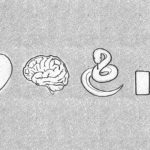Which Bible character best represents us, as a society, in this COVID-19 moment? My vote is for the “bleeding woman” of Luke 8. Let me explain why.
When she first comes to Jesus, we’re told she’d “had a discharge of blood for twelve years, and though she had spent all her living on physicians, she could not be healed by anyone” (Luke 8:43).
A few observations. First, she’s lonely. She’s been social distancing for 12 years! I was going crazy after 12 days. Israel had laws for contagious diseases in the Old Testament, which kept her at arm’s length from polite society. A few months ago, we might have found such policies archaic or cruel, but now we get it: we understand their significance for public health.
Like her, many of us are lonely right now, shut in our homes, becoming experts on Zoom. Social distancing can, over the long haul, have a negative effect on our mental health. We were made for relationship, by a relational God. For some, this season’s isolation has only exacerbated a sense of desertion felt for years: the spouse who left, the friend who stabbed you in the back, the dad you never knew.
Second, the bleeding woman is also broke. She’s spent “all her living” on doctors. The bank account is empty, the money dried up, her hope likely gone. We can relate to her on this point, too. I’ve talked to multiple friends who’ve lost jobs in recent weeks, or whose businesses are fighting to stay afloat. The whole economy is tanking, and we’ve passed a $2 trillion stimulus package—the largest in history—in an attempt (like the bleeding woman) to address our condition by throwing everything we have at it.
We can relate to this woman.
Finally, and most importantly, she’s sick. This woman is bleeding out; her body ain’t workin’ right. In the Bible, blood is seen as “the life” of a person (Lev. 17:13–14). So there’s a picture here of life gradually draining out, slowly slipping away. We can relate to this, too. Even if we don’t know anyone with the virus, COVID-19 has confronted us with our mortality, bringing us face to face with the inconvenient truth that we’re not invincible. We’re all “bleeding out” in this broader metaphorical sense; our lives gradually slipping away.
This woman is us. Sick, broke, and lonely. So where do we go? What do we do? Is there any hope for our condition? Let’s follow her to find out.
Jesus Is Contagious
The woman reaches out to Jesus and finds, surprisingly, he is the one who’s contagious: “She came up behind him and touched the fringe of his garment, and immediately her discharge of blood ceased” (v. 44).
She doesn’t get him dirty; he makes her clean. She doesn’t transfer her impurity to him; he transfers his purity to her. She doesn’t give him her sickness; he gives her his wholeness.
The gospel has often been called a “great exchange,” where in union with Christ he exchanges our poverty for his riches, our wickedness for his righteousness, our rejection for his perfection, our sickness for his wholeness. Ultimately, the cross and resurrection is where the sinner’s condition is met by the Savior’s compassion.
Christ exchanges our poverty for his riches, our wickedness for his righteousness, our rejection for his perfection, our sickness for his wholeness.
Jesus highlights her faith, saying, “your faith has made you well” (v. 48). This can raise a troubling question for some: Does that mean if I don’t get healed, I simply didn’t have enough faith? No, keep reading Luke’s Gospel. Jesus suffers; his followers suffer. It’s part of the Christian package.
Yet healing is on its way. The resurrection of Jesus shifts our question from “if I get healed” to “when I get healed” (as Andrew Wilson helpfully observes). The risen Christ is the firstfruits of God’s plan: to raise the dead and restore all creation. So even if we don’t experience healing today, we can know we will soon.
Resurrection Is Coming
Like the bleeding woman, we sometimes get a foretaste and glimpse of this final victory. I experienced it last week, when my “Grandma Rena” was apparently healed and released from the hospital, after friends rallied with me to pray for her. But I also experienced the “not yet” of the kingdom last week, when my friend Mitch passed away all too young from heart failure—though he deeply loved Jesus and was a man of great faith.
The Christian gospel is good news for both Mitch and Rena. For Mitch, it proclaims death doesn’t have the last word (we will be raised). For Rena, it proclaims Christ is close (we can experience his care today). Our resurrected King is alive, with both strength for today and hope for tomorrow.
As the sick, broke, and lonely, we can reach out to Jesus, entrusting ourselves to his faithful care.
Power of Being Known
But Jesus doesn’t only address the woman’s sickness; he also addresses her loneliness. I love how he calls her out: “Who was it that touched me?” (v. 45). His endgame is not simply that she’s healed, but that she’s known. At first, she’s scared: “When the woman saw that she was not hidden, she came trembling” (v. 47) She is afraid because everyone around her is about to realize they need to go home and take a bath (she’s been pressing in around them). The only thing worse than living in the shadows is being exposed to the judgment and stares of others. I’ll just take my healing and go, Jesus; thank you very much.
Yet how does Jesus respond? “Daughter, your faith has made you well; go in peace” (v. 48). He calls her daughter. This is an expression of fatherly care. Jesus doesn’t call her “inconvenience” or “nuisance.” He calls her “child.” When we approach God in faith, he greets us not with a lecture but with an embrace.
Jesus’s endgame is to make you a child of the living God. As the sick, broke, and lonely, we can reach out for comfort and help. Jesus calls you out of hiding—not to condemn you, but to make you whole. He essentially says, My goal is not just to fix your life, but to bring you into mine.
Heroic Doctor
Christ is our Great Physician, and that is a powerful identity. Doctors and nurses have been the most inspiring heroes of this season. Health-care workers brave the frontlines to care for the sick and wounded, knowing all too well the contagiousness of the virus they’re up against. They place themselves at risk of contracting, in this microbiological warfare, the very condition they seek to cure.
Around the world we see similar scenes of cities stopping to shout and clap in unison from windows in gratitude; of police cars surrounding hospitals to sound their sirens in support of those laboring inside; of citizens declaring from their homes: you’re staying there for us; we’ll stay here for you.
Why are our hearts captivated by such actions? I would suggest these images reflect the true story at the center of the world. For Christ is the Great Physician, who drew close to care for us—the sick and wounded. He knew how contagious our condition was, yet he came. He came knowing that absorbing our affliction was the only cure.
Jesus knew how contagious our condition was, yet came knowing that absorbing our affliction was actually the only cure.
At the cross, he came under the curse of our condition, the physician taking on the predicament of his patient, to carry our sickness all the way down to the grave—and bury it there. Death could not hold him, however. As the resurrected King, he is now bringing communion with God to those who receive him, and he will bring new life to all creation.
Christ is the Great Physician, who took on our sickness to heal and make us whole. Like the bleeding woman, we’re invited to reach out to the One who’s drawn close—already reaching out for us.
Involved in Women’s Ministry? Add This to Your Discipleship Tool Kit.
 We need one another. Yet we don’t always know how to develop deep relationships to help us grow in the Christian life. Younger believers benefit from the guidance and wisdom of more mature saints as their faith deepens. But too often, potential mentors lack clarity and training on how to engage in discipling those they can influence.
We need one another. Yet we don’t always know how to develop deep relationships to help us grow in the Christian life. Younger believers benefit from the guidance and wisdom of more mature saints as their faith deepens. But too often, potential mentors lack clarity and training on how to engage in discipling those they can influence.
Whether you’re longing to find a spiritual mentor or hoping to serve as a guide for someone else, we have a FREE resource to encourage and equip you. In Growing Together: Taking Mentoring Beyond Small Talk and Prayer Requests, Melissa Kruger, TGC’s vice president of discipleship programming, offers encouraging lessons to guide conversations that promote spiritual growth in both the mentee and mentor.

































